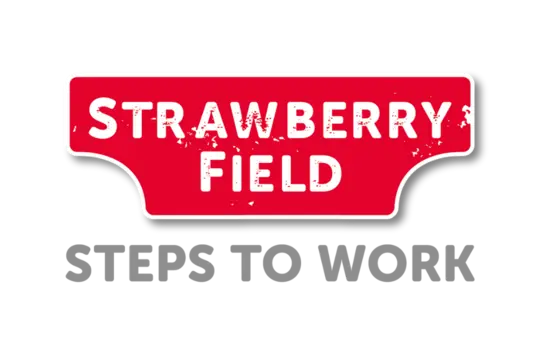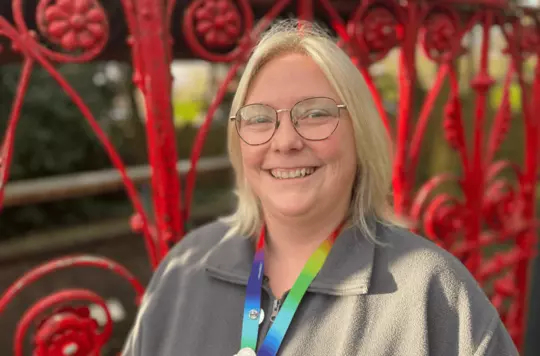Needs to try harder: am I Lazy or Dyslexic?
It's Dyslexia Awareness Week. Dyslexia is a common learning difficulty that affects reading, writing, and spelling due to differences in how the brain processes language. For many, it can be a barrier to employment, especially when employers fail to make reasonable adjustments.
Our Employment Development Coach, Sarah, has dyslexia and understands the barriers that young people living with the condition experience. In this blog, Sarah reflects on the struggles she faced in school, and how an accepting workplace can make all the difference.
"School was never a good place for me. It was the late 90s early 2000’s, and I was often labelled the class clown – or worse, lazy. But that couldn’t have been further from the truth.
I remember trying so hard to read words from a book or off the blackboard, but nothing would stick. Other kids seemed to take it in easily, like it just stayed in their brains. For me, it was like trying to catch smoke with my hands.
My mind would start to wander. I’d daydream or mess about – especially when we had to read aloud in front of the whole class. I learned that lesson too many times: being laughed at when I stumbled over words. So I found a way out – if I could make them laugh with me, maybe they wouldn’t laugh at me. It became my shield. The class clown role gave me a way to avoid being exposed, but deep down, I knew exactly why I was doing it. And it still hurt.
Homework was no better. The struggle didn’t stop when I left school for the day. My younger sibling – two years below me – was asked to help me. Imagine how that felt. She was praised for how clever she was, while I sat there feeling stupid, thick, slow. I heard those words almost daily – from teachers, from classmates, and eventually, from myself.
My school reports always said, “Needs to try harder.” But what does that even mean when the words on the page won’t stay still? When you can’t remember the ten words on your spelling test, no matter how hard you try? When reading feels like decoding a foreign language?
And it wasn’t just reading or writing. I struggled with planning, starting tasks, and remembering instructions. Even telling the time or knowing my left from my right. Things other people seemed to just get felt impossible to me. Over time, I started to believe what they said: that I was stupid. One teacher even told me I’d end up in prison. So eventually, I thought – what’s the point in trying?
It wasn’t until college that I was finally diagnosed. That’s when things slowly started to change. I began to develop strategies, find tools that helped. I realised I was actually good at problem-solving – probably because I’d been doing it my whole life just to get by. But the stigma and the labels stuck. Even after milestones and achievements, that feeling of being an imposter never really left.
I kept my diagnosis to myself. I didn’t tell colleagues or employers – I was afraid they’d treat me differently, or worse, like school all over again. So I masked. I worked three times as hard to keep up with everyone else, to not be found out. But that kind of effort comes at a cost.
Burnout is very real for neurodivergent people, and I learned that the hard way. I didn’t leave my job, but I started to notice the signs – missed deadlines, being pulled up on poorly written emails, being asked why I’d forgotten things or not followed through. It all brought back the same old fears – am I being seen as lazy again? Stupid? Are they thinking I’m not trying hard enough?
Even though I was working harder than ever, it felt like history was repeating itself. I couldn’t be open about the real reason I was struggling, so I kept masking. And the more I masked, the more exhausted I became.
At Strawberry Field, I don’t have to mask. I don’t burn out. I get to focus on what I’m good at, not what I struggle with. And honestly, that changes everything.
We all have strengths. We all have areas where we need support. Neurodivergent or not. When we embrace those differences – our quirks, our unique ways of thinking – we realise we were never stupid or lazy. We just needed the freedom to thrive."
If you can relate to Sarah's experience and need some support, our Steps to Work programme is here. to help.

Steps to Work
A programme for young adults with learning difficulties or other barriers to employment.

Meet Sarah
Discover Sarah’s role at Strawberry Field and how her dedication helps drive community programs, wellbeing support and life-changing opportunities.